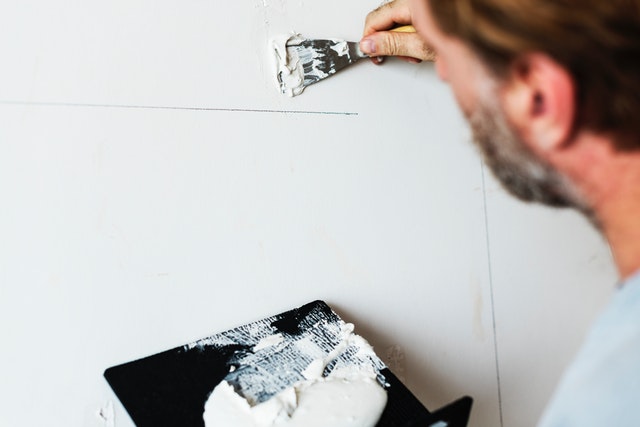5 Ways To Find Properties For Sale That Are Not Listed Yet
 Real estate agents, who are successful, know that getting listings is the life energy of their business. It is boring to sit around waiting for a new client to call. It is expensive to spend extraordinary amounts of money on general advertising to get listings. Clever real estate people learn how to find properties for sale before they are listed.
Real estate agents, who are successful, know that getting listings is the life energy of their business. It is boring to sit around waiting for a new client to call. It is expensive to spend extraordinary amounts of money on general advertising to get listings. Clever real estate people learn how to find properties for sale before they are listed.
Value Of Unlisted Properties
Real estate agents and investors have a competitive advantage when they find properties for sale that are not listed. These off-market properties may be available at a better price. There may have little or no other competition from other potential buyers making an offer. Real estate agents can motivate buyers to move quickly to close a deal on an unlisted property before it goes on the market.
Finding Off-Market Properties
Here are five ways to find properties before they are listed:
1. Check Tax Records
Sometimes it is as simple as looking up the current owner in the tax records, making a contact, and giving an offer. That direct approach may work well as long as enough contacts are made to improve the odds of finding a motivated seller.
2. Maintain Contact With Past Buyers
Real estate agents should always stay in contact with past buyers of a property that they sold. On the anniversary of the sale date, send a nice postcard with a handwritten note that says something like “I remembered this was the date you bought your home (or building). If you ever want to sell it, give me a call.”
3. Networking
Another technique is in-person networking with people. Join professional associations, mingle with people, and learn what neighborhood they live in. Tell them someone is thinking of moving there and ask them if they might be considering selling their home or if they know someone who is.
4. Friendly Neighborhood Scouting
Become known in a neighborhood as a buyer. When an investor likes a neighborhood, a terrific strategy is to wander around, knock on doors, and hand out business cards.
People hate someone knocking on the door who is trying to sell them something. However, they usually have a very positive reaction when someone wants to buy the home. There is no need to be shy. Walk around a neighborhood, get to know it better, and the people who live there.
5. Title Companies And Real Estate Departments Of Banks
Make friends with the staff at title companies. Get to know the people working at banks in the real estate department that handles the short sales and foreclosures. These two groups are very strong sources for off-market deals.
The staff of title companies knows when a sale fails at the last moment due to loan funding issues. Bank staff knows when new foreclosures come in before they list for resale. By moving fast, an investor takes advantage of the short gaps between the time these properties are available for sale and when they get listed.
Summary
Learning how to find off-market properties creates many benefits. Investment opportunities expand for real estate investors and real estate agents create more listings for themselves with these proactive strategies. Think of this as a treasure hunt and it actually can be a lot of fun.
One of the best ways to be prepared to purchase a new property is to have your pre-approval in place. Be sure to meet with your trusted mortgage professional to discuss your financing options.

 No doubt you’ve been told that curb appeal will help sell your home. But if money is short you’ll need to do some curb appeal on a budget tricks.
No doubt you’ve been told that curb appeal will help sell your home. But if money is short you’ll need to do some curb appeal on a budget tricks. When you started thinking about putting your house up for sale, you probably made a list of repairs that need to be done ahead of time. If that list was long, you might be at a point where you’re asking if it’s all worth it. Will prospective buyers really notice the little things? And even if they do, will that affect how much you’re able to get for your home?
When you started thinking about putting your house up for sale, you probably made a list of repairs that need to be done ahead of time. If that list was long, you might be at a point where you’re asking if it’s all worth it. Will prospective buyers really notice the little things? And even if they do, will that affect how much you’re able to get for your home? Renovations that create a multi-use property or the development of a new multi-use project can be a very attractive investment especially in urban areas that are undergoing redevelopment. The concept of multi-use is to make the most of the site that is revitalized or developed.
Renovations that create a multi-use property or the development of a new multi-use project can be a very attractive investment especially in urban areas that are undergoing redevelopment. The concept of multi-use is to make the most of the site that is revitalized or developed. Trading land like a billionaire relies on three simple premises. The first one is to acquire the land for cheap. The second one is to never intend to sell it. The third one is, if you trade it, trade up.
Trading land like a billionaire relies on three simple premises. The first one is to acquire the land for cheap. The second one is to never intend to sell it. The third one is, if you trade it, trade up.